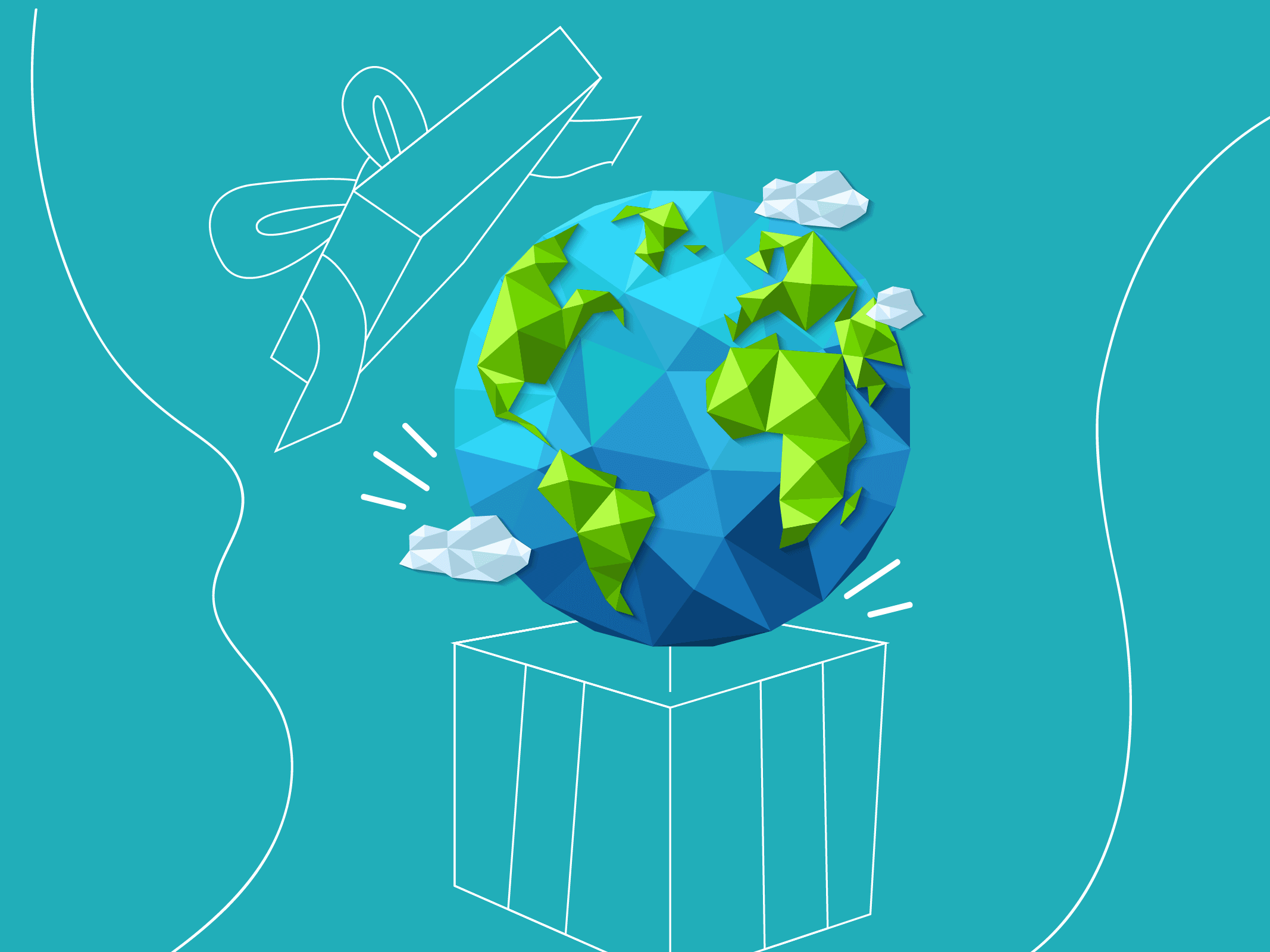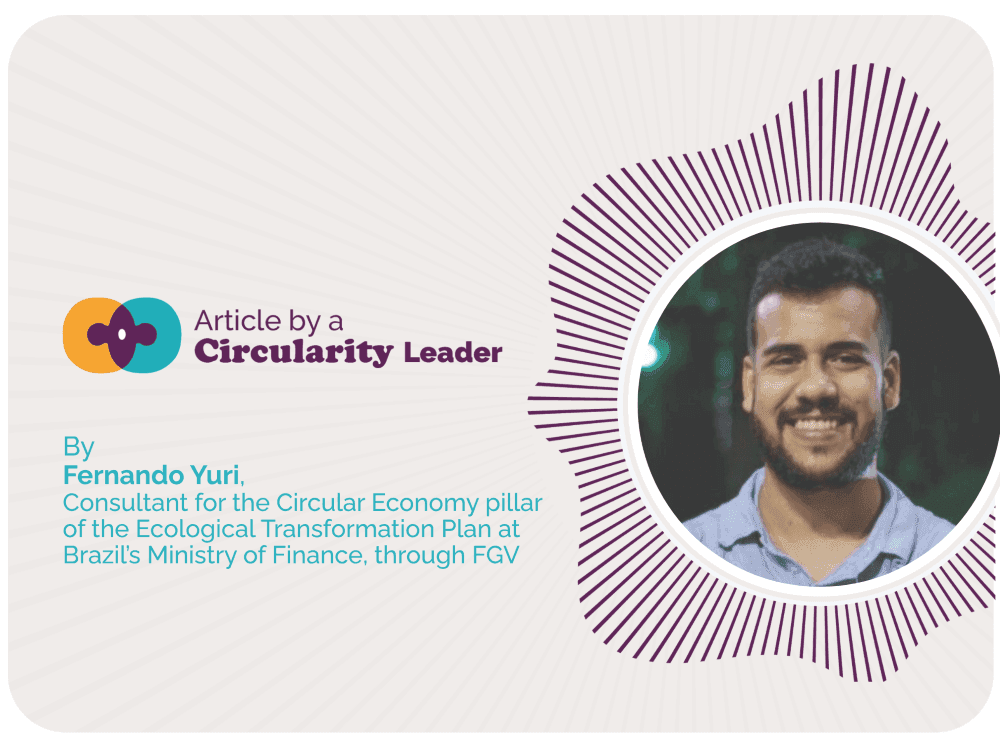
22/11/2023
Christmas Circular: more memories, less waste
By Arlene Carvalho, from the Circular Movement
When we think about celebrating Christmas, a characteristic film of images emerges: twinkling lights, religious and family traditions that transcend generations, the warm figure of Santa Claus, and, of course, the excitement of giving and receiving gifts. It's a time of joy, generosity, and unity, where the atmosphere is filled with the festive spirit.
However, amidst all these festivities, a concerning fact arises: in 2021, the Brazilian Association of Supermarkets (Abras) estimated that the average consumption of Brazilian families increased by 5% per month in the last months of the year (November and December). The same survey showed that in Brazil, the days with the highest collection of domestic solid waste are Christmas Eve and New Year's Eve, with an estimated increase of up to 20% in December alone.
Furthermore, waste experts already consider a recurring average of 25% increase in waste generation in the last two months of each year. The reason would be the realization of various festivities, from celebrations to traditional Christmas and New Year's events. So, this becomes an opportunity to reflect on how we can experience Christmas in a circular way. Is it really possible?
Before we move forward, let's do a little exercise. Think about the gifts you buy to celebrate Christmas festivities. Now, consider the amount of resources and raw materials used in the manufacturing of the phones, toys, clothes, and shoes that you gift and receive. Reflect on the fuel used for these products to reach you and the fuel you use to visit shopping places. And what about the packaging of all these products?
From these reflections, the question arises: are material items really what build the celebrations, or is it the lived experience? This is the question that guides the Circular Movement's year-end campaign: "Christmas Circular: more memories, less waste."
"We need to think beyond what has already been discussed, for example. What do we understand about Christmas, you know? It's more than a moment of eating and exchanging gifts. We always talk about socializing and relationships, and that still makes a lot of sense post-pandemic. This year, we found it important to stimulate reflection on the preparation process, on the experience of preparing for Christmas. Children preparing the dinner and helping to set up the space, creating decorations with objects that can be reused - under supervision, helping, living together - all of this helps to create meaningful emotional memories that are not solely associated with consumption," comments the pedagogical coordinator of the Circular Movement, Professor Edson Grandisoli.
The idea is that the experience is allied with collectivity. "The experience involves everyone - the doorman, the cleaning guy in the condominium, the security guard working on Christmas night. Sharing the meal, if possible, is a way to strengthen these community ties beyond the family," he points out.
Grandisoli also emphasizes that gifts are not villains. "We can think about making gifts. Offering gifts of sentimental value that result in less waste, such as donations, experiences, or sweets and cookies made by you. More than a simple gift, it is the presence that matters. And if you really want to buy something, why not think about bringing things that have a longer-lasting presence in people's lives? Seedlings of trees and plants to care for are good examples," he details.
By focusing on experiences and memories, rather than material goods, not only do you create a more meaningful Christmas, but you also contribute to richer relationships and a more circular environment. The idea reinforces the notion that the true riches of Christmas reside in the connections and memories built, providing lasting benefits for all involved.
"It's a worldview that applies to holidays and our life in general. How about creating and assembling with your child the toy that will be their Christmas or next Children's Day gift?" he explains.
All these reflections serve as a basis for rethinking not only Christmas but also our lives in a more conscious and circular way. Where the value of shared experiences surpasses the simple accumulation of material goods, and respect for the environment guides our choices. It's a great time to try to redefine our relationships with the material world and with other people.
By questioning the environmental impact of our Christmas traditions, we begin to understand the deeper essence of Christmas - present, mainly, in lasting memories and human warmth. And, above all, we gift the planet, contributing to a more circular and harmonious future.
But what if I still want presents?
Within the Circular Economy, it is feasible to give gifts responsibly, and many of these practices are directly related to the 7 Rs of circularity, as well as conscious consumption.
"We need to think beyond reducing packaging, for example. It is also important to consider, whether the gift is for oneself or others, if it is really necessary to buy that item. For example, does your phone really have no repair or do you just want a new one because the manufacturer released a more current model? Additionally, it is essential to know who you are buying from, what the agenda of that company is," Grandisoli concludes.
By celebrating Christmas in a more circular way, we can rethink the meaning of the present, opting for durable products and minimizing waste. From choosing gifts to decorating the house, and preparing food, each decision can be a contribution to a healthier planet.
Instead of being a season of excess and consumerism, Circular Christmas is an opportunity to establish more meaningful bonds. Thus, this Christmas, how about challenging the idea that more is always better and rediscovering the joy of sharing authentic moments, building not only unforgettable memories but also a more circular future for everyone? In the Christmas of experiences, everyone wins, and this is a gift that resonates beyond the festivities and positively impacts our world.

